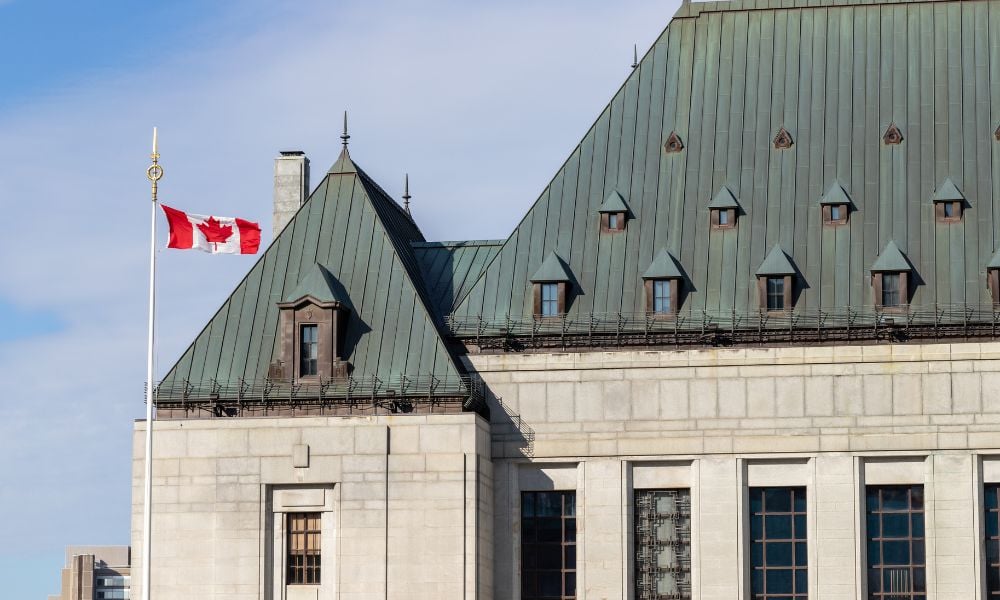
Top court justices were split on multiple issues in Friday's 180-page decision

New restrictions introduced in 2019 on the availability of preliminary inquiries do not apply to some criminal proceedings, the Supreme Court of Canada ruled Friday.
The court found that preliminary inquiries are available when defendants are charged with an offence for which they personally face a maximum sentence of at least 14 years, as well as some other types of cases.
Agénor Archambault and Gilles Grenier were accused in separate, unrelated cases of historical sexual offences against a child. The alleged offences occurred between 1958 and 1960 for Archambault and 2003 to 2007 for Grenier. The offences carried a maximum prison term of 10 years when they were committed.
After the alleged offences but before the defendants were charged in the summer of 2019, the maximum penalty for the offences increased to a 14-year prison sentence.
Section 535 of the Criminal Code was then amended in September 2019 so that only defendants charged with offences with a maximum prison sentence of 14 years or more were allowed preliminary inquiries. These hearings are meant to determine whether prosecutors have enough evidence to proceed with a trial. In 2020, Archambault and Grenier both requested preliminary inquiries.
The Court of Québec denied their requests, so the defendants appealed to a superior court judge. The judge presiding over Archambault’s case upheld the Court of Québec’s decision because the s. 535 amendments required the defendant to be charged with an offence for which he could be punished by 14 years imprisonment or more. A second judge dismissed Grenier’s case, saying he should have requested a preliminary request before the s. 535 amendments.
However, a court of appeal disagreed, holding that the new s. 535 did not apply to the two defendants; they had the right to preliminary inquiries. The court of appeal consolidated the two cases. The Crown challenged the ruling.
Justices Suzanne Côté, Malcolm Rowe, Sheilah Martin, Nicholas Kasirer, and Mahmud Jamal dismissed the appeal, but for different reasons.
Richard Wagner, Andromache Karakatsanis, Michelle O'Bonsawin, and Mary Moreau dissented.
Noting that parliament aimed to make the justice system more efficient by getting rid of preliminary inquiries for all but the most serious cases, Karakatsanis wrote that he disagreed that a defendant’s right to a preliminary inquiry is governed by the law that existed when the defendant was charged.
Karakatsanis said preliminary inquiries should only be available to defendants who requested one before s. 535 was amended in September 2019 or in cases where a defendant personally faces a prison sentence of 14 years or more.
The justice added that she would allow the Crown’s appeal.
The court was split 4-2-2-1 on when s. 535’s restrictions on the availability of preliminary inquiries apply to defendants. Wagner, Karakatsanis, O'Bonsawin, and Moreau affirmed that the restrictions apply to anyone who requests one after September 2019.
Kasirer and Jamal agreed with this determination but added that defendants also have the right to ask for a preliminary inquiry “each time a court agrees to reserve an accused’s right to elect their mode of trial.”
Côté and Rowe repeated that the right to a preliminary inquiry is tied to “the time charges are laid.” The justices added they believed anyone charged before September 2019 should be subject to the older, unamended version of the Criminal Code.
Martin said defendants who allegedly committed offences before September 2019 were eligible for preliminary inquiries at the time and “should retain that eligibility today.”
The court was split 5-2-2 concerning interpreting the amended s. 535.
Wagner, Karakatsanis, Martin, O’Bonsawin, and Moreau determined that under the new s. 535, a defendant must be personally liable to 14 or more years of prison time to have access to a preliminary inquiry.
Côté and Rowe meanwhile found that in cases “where the maximum sentence for an offence was increased to 14 years between the commission of the offence and the laying of charges,” a defendant should be able to access a preliminary inquiry even if they are not personally facing a maximum sentence of 14 years.
Kasirer and Jamal did not address the issue.
Counsel for the parties did not respond to requests for comment.
Editor's Note: this article was updated to clarify that certain statements by Suzanne Côté and Malcolm Rowe about preliminary inquiry rights were not in fact the majority opinion.